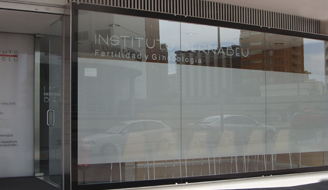The Pathogens magazine publishes an investigation carried out by Instituto Bernabeu and Danish scientific organization on IVF results in women with altered vaginal microbiota
Instituto Bernabeu has participated in an international investigation on the vaginal microbiota impact on reproductive results after in vitro fertilization (IVF). It has been developed along departments of Clinical Medicine of the University of Aarhus and the Skive Fertility Clinic in Denmark, and the Reproductive Microbiology Research Unit, Statens Serum Institute, of Denmark. Conclusions have been collected and published by the international scientist journal Pathogens.
The work is entitled “The association between vaginal dysbiosis and reproductive outcomes in sub-fertile women undergoing ivf-treatment: a systematic prisma review and meta-analysis”. An analysis that makes possible to advance in the investigation of the infertility causes and to find new treatment strategies.
Researchers have carried out a systematic review and an updated meta-analysis of vaginal dysbiosis based on the advances that have occurred in molecular microbiology in the last decade. This made possible to perfect the studies of the vaginal tract microbiota - which until then has had the microscope as the only diagnostic method. The detailed view obtained from the vaginal microbiota has made possible to evaluate the impact that its imbalance has on the reproductive results of women subjected to in vitro fertilization (IVF) treatment.
Seventeen studies involving 3,543 patients have been included in the research. 18% of which suffered from vaginal dysbiosis. This imbalance is a risk factor associated with embryo implantation failure, early pregnancy loss, or premature delivery.
Researchers have had a predefined analysis of studies that used molecular methods to diagnose vaginal dysbiosis, which resulted in a significant reduction in the clinical pregnancy rate, compared to patients with a normal vaginal microbiota.
The work concludes “This systematic review and meta-analysis concludes that vaginal dysbiosis, across all diagnostic methods, is significantly associated with a higher rate of early pregnancy loss among women undergoing IVF. Furthermore, the stratification of molecular methods to diagnose dysbiosis revealed a significant negative impact on clinical pregnancy rates by embryo transfer ”.
The working group explains that more studies are needed to understand the impact of alteration of the vaginal microbiota in IVF.
Instituto Bernabeu’s Genetic and Reproductive Counselling Unit coordinator, Dr Andrea Bernabeu, the Genetics and Molecular Biology laboratory director, Dr Belen Lledo, along with Danish doctors Axel Skafte-Holm, Peter Humaidan and Thor Haahr, from the Aarhus University Department of Clinical Medicine and the Fertility Clinic Skive; and Jørgen Skov from the Statens Serum Institute in Copenhagen have participated in the research.
A. Skafte-Holm, P. Humaidan, A. Bernabeu, B. Lledo, J. Skov Jensen, T. Haahr









